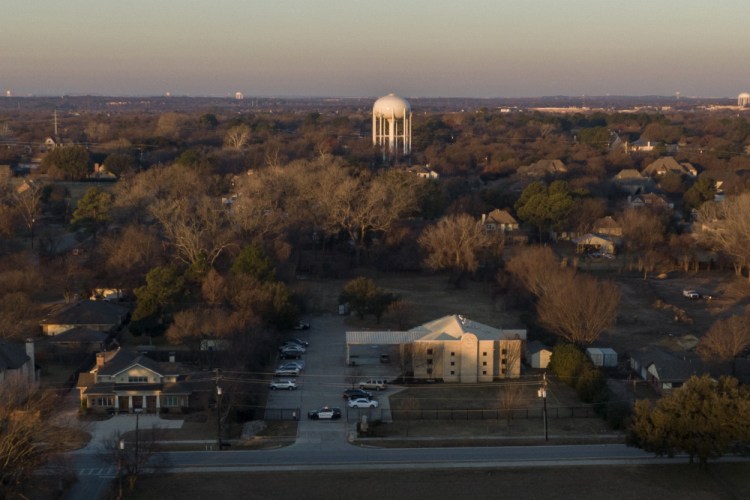COLLEYVILLE, Texas — In the final moments of a 10-hour standoff with a gunman at a Texas synagogue, the remaining hostages and officials trying to negotiate their release took “near simultaneous plans of action,” with the hostages escaping as an FBI tactical team moved in, an official said Friday.
“The professionalism and expertise of the negotiation team, combined with the composure and judgment of the hostages, set the conditions for successful resolution,” Matt DeSarno, the FBI’s special agent in charge in Dallas, said at a news conference.
DeSarno said that just after 9 p.m. on Jan. 15, he authorized his teams to enter the synagogue just as the hostages seemed to “have come to a similar conclusion” to take their freedom into their own hands.
As agents approached the building, he said, they encountered the three remaining hostages running out and continued moving toward the synagogue to face Malik Faisal Akram, the 44-year-old British citizen who had taken hostages during morning services at Congregation Beth Israel in the Dallas-area suburb of Colleyville.
Akram had released a hostage shortly after 5 p.m. but those remaining said he became more belligerent and threatening as the night wore on. Rabbi Charlie Cytron-Walker said Friday that after giving Akram some juice, he threw a chair at Akram and he and the two other remaining hostages fled.
“We were constantly looking for an opportunity to leave,” Cytron-Walker said.
The standoff ended after the last hostage ran out of the synagogue and the FBI SWAT team rushed in. Akram was fatally shot by the FBI, according to DeSarno.
The Tarrant County Medical examiner on Friday ruled Akram’s death a homicide and said he was killed by multiple gunshot wounds. In Texas, a death being ruled a homicide indicates that one person was killed by another but does not necessarily mean the killing was a crime.
DeSarno, who had attracted attention on Saturday night for saying that the hostage-taker was focused on an issue not specifically connected to the Jewish community, took pains on Friday to stress that the FBI regarded the episode as an act of terrorism that threatened the Jewish community and “intentionally targeted” a house of worship. The act, he said, “was committed by a terrorist espousing an anti-Semitic worldview.”
DeSarno said Akram is believed to have selected the synagogue because it is closest to a federal prison in nearby Fort Worth that houses a “convicted terrorist” with suspected al-Qaida links. During negotiations, he demanded the release of that prisoner in exchange for letting the hostages free. Though he did not identify the prisoner, law enforcement officials have identified her as Aafia Siddiqui, who is serving an 86-year prison sentence after being convicted of shooting at American military personnel after being detained in Afghanistan.
Siddiqui’s attorney said the prisoner said she had no connection to Akram.
Video of the standoff’s end from Dallas TV station WFAA showed people running out a door of the synagogue, and then a man holding a gun opening the same door just seconds later before he turned around and closed it. Moments later, several shots and then an explosion could be heard. The medical examiner determined that Akram died at 9:22 p.m.
Akram was from the English industrial city of Blackburn. His family said he had been “suffering from mental health issues.”
He arrived in New York on a tourist visa about two weeks before the attack on the synagogue and cleared checks against law enforcement databases without raising any red flags, officials said. He spent time in Dallas-area homeless shelters before the attack.
The FBI is still investigating how Akram got the weapon, though it has had success in tracking his movements from the time he arrived in New York on Dec. 29 until his entrance into the synagogue on Jan. 15. DeSarno said Friday that the FBI was still reviewing his devices and scrutinizing his contacts. He was not known to the FBI or U.S. intelligence communities until the hostage-taking, DeSarno said.
Associated Press writer Jamie Stengle contributed from Dallas, and AP writer Eric Tucker contributed from Washington.
Comments are not available on this story.
Send questions/comments to the editors.


